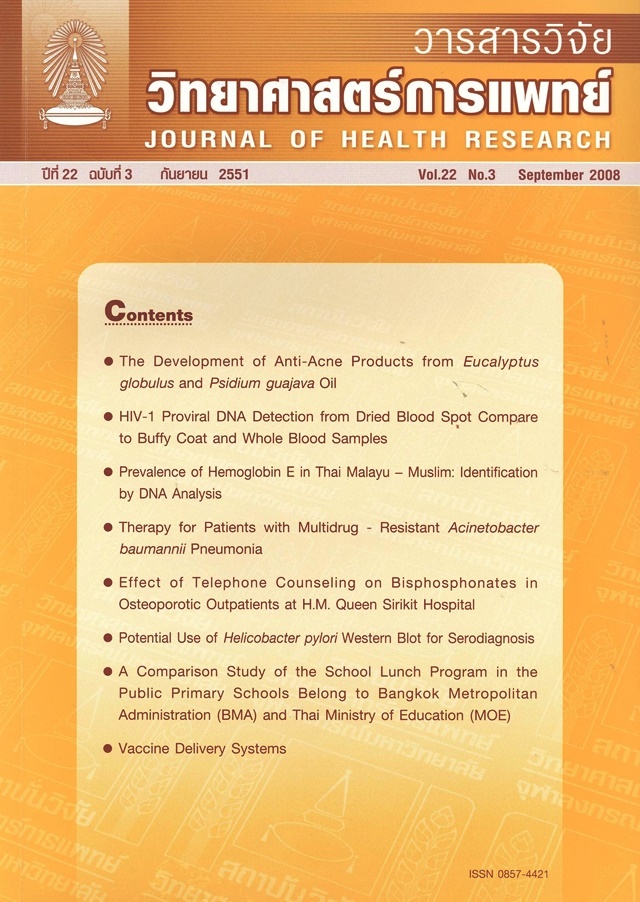A Comparison Study of the School Lunch Program in the Public Primary Schools Belong to Bangkok Metropolitan Administration (BMA) and Thai Ministry of Education (MOE)
Keywords:
school lunch program, child nutrition, school healthAbstract
This study was conducted to better understand the current school lunch practices among the public primary schools under the auspices of Bangkok Metropolitan Administration (BMA) and Thai Ministry of Education (MOE). A total of 6 schools, 3 from BMA and 3 from MOE, were selected to compare the lunch schemes. This study focused on qualitative approach. Data was mainly collected through direct observation and interviews. The study revealed that the program management and system are quite different between schools under BMA and MOE. The provision system of the school lunch was more regulated at BMA schools. To prepare a school lunch containing adequate energy and nutrients seemed to be still challenging for the most of schools under BMA and MOE. The amount of vegetable and fruit served in the lunch were remarkably less than recommended portions at both schools. The common difficulties of many schools encountering were students’ food choices (western snacks and fast-food), lack of parental support, and the recent global increase in food price and inflation.







